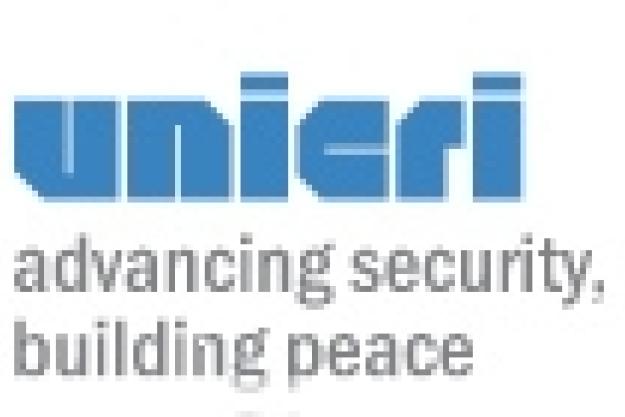
United Nations Interregional Crime and Justice Research Institute – UNICRI
The OPCW, together with the United Nations Interregional Crime and Justice Research Institute (UNICRI) based in Turin, Italy, organised a one-day international seminar entitled “Multilateral Approaches to Non-Proliferation – The Chemical Dimension”, which focussed on efforts to prevent the illicit trafficking of chemical materials. The seminar took place on 18 March 2009 at the OPCW headquarters in The Hague.
“The issue of multilateralism is of significant importance for the OPCW because in our view, global, regional and national security is impossible without multilateral approaches,” said the OPCW Director-General, Ambassador Rogelio Pfirter. “This seminar, jointly organised with UNICRI, is a visible example of effective cooperation among international organisations to promote non-proliferation standards and arrangements in practice at regional and national levels.”
The UNICRI Director, Mr. Sandro Calvani, visited the Technical Secretariat to discuss the work of the Organisation and then opened the seminar with Director-General Pfirter. During his visit the Director-General briefed Mr Calvani on the implementation of the Convention, including efforts undertaken by the OPCW in the area of non-proliferation. He underlined the importance of universal adherence to the Convention and of its effective national implementation, particularly as regards illicit trafficking of toxic chemicals and precursors.
Mr Calvani expressed his appreciation to the Director-General for the OPCW’s cooperation with UNICRI and other international organisations in developing the Knowledge Management System, which allows States to share information and expertise, disseminate best practices and identify areas of common interest to combat illicit trafficking of chemical, biological, radiological and nuclear (CBRN) material. In opening the seminar Mr Calvani said: “The aim of the Knowledge Management System is to assist States in absorbing countermeasures, encouraging them to develop an organisational learning approach through which States’ experts can learn collectively how to identify problems and solutions by incorporating and adapting experiences made within the system.”
Representatives from international and regional organisations such as the European Commission, IAEA, EUROPOL and SECI Centre attended the event, as well as delegations from OPCW Members States. The programme included presentations on OPCW’s expertise in the area of illicit trafficking of chemical material, and a visit to nearby Rotterdam to learn about effective counter-measures for preventing illicit trafficking of CBRN material in an international port.
Speeches and presentations
- Welcoming Remarks by Ambassador Rogelio Pfirter, Director-General of the OPCW and Mr Sandro Calvani, Director of UNICRI
- Presentation by the European Commission
- Legal Framework for CWC Transfer Controls and Enforcement: Import-Export Provisions and Cooperation between the National Authority and Customs, by Mr Santiago Oñate, Legal Adviser, OPCW
- Issues arising from the Second Review Conference on Safety and Security at Chemical Plants and Relationships with CWC stakeholders, by Mr Krzysztof Paturej, Director of the Office for Special Projects, OPCW
- Presentation by Customs Rotterdam, by Mr N. Perdijk, Policy Officer – non-fiscal tasks, Customs Rotterdam
